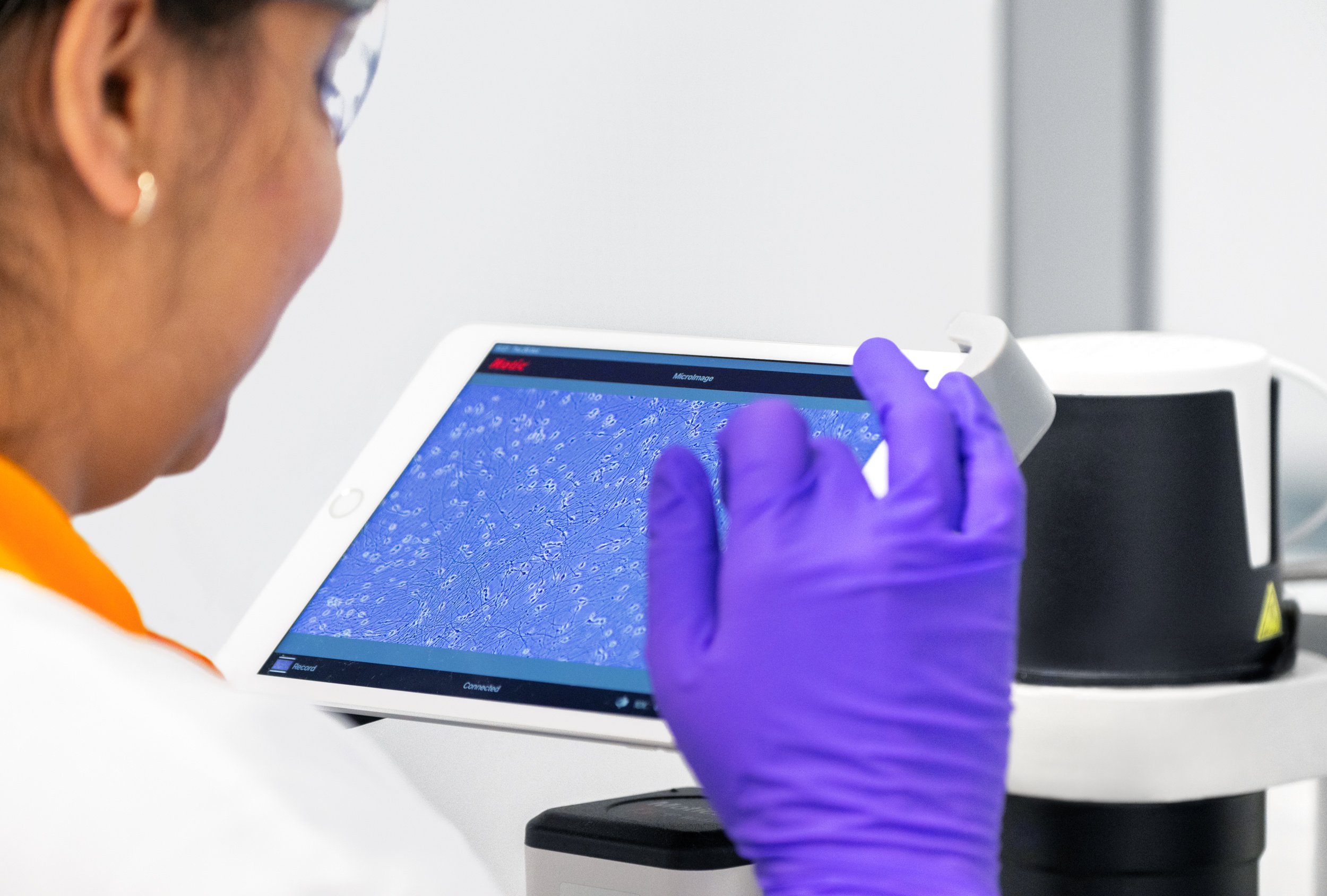01.10.2024 | Published by bit.bio

- bit.bio's ioSensory Neurons novel human pain model was selected for presentation at SfN’s Neuroscience 2024 press conference, and it was chosen from over 10,500+ submissions.
- bit.bio will host an expert panel discussion on tackling neuroscience's data reproducibility crisis through the standardisation of iPSC-derived cells, paving a way for more reliable neuro research studies.
- A diverse range of posters presenting new data highlights the application of ioCells in ALS/FTD, Huntington's disease, Multiple sclerosis, and Alzheimer's research. These posters showcase the use of novel complex neuronal models, disease modelling, and target identification while highlighting the functionality and consistency of ioCells.
CAMBRIDGE, England, 08:00, 30 September 2024: bit.bio, the company coding human cells for novel cures and a pioneer in the field of synthetic biology, today announces its comprehensive program for Neuroscience 2024, the annual meeting of the Society for Neuroscience (SfN). This premier event, recognised as the world's largest forum for emerging neurological discoveries, will take place October 5-9, 2024, at Chicago's McCormick Place Convention Center.
bit.bio will showcase its ioCells Toolkit for neurodegenerative disease research, unveil important applications of its new CRISPR-Ready ioCells portfolio, and present data demonstrating unprecedented lot-to-lot consistency of ioCells - setting a new gold standard in cell model reproducibility. Attendees can visit booth #1545, where bit.bio experts will discuss how synthetic biology and cell advancements transform neuroscience research and drug discovery.
Breakthrough in Pain Research with ioSensory Neurons - Press Conference
Selected from over 10,500 submissions, bit.bio's Dr. Tony Oosterveen, Principal Scientist, will present at the SfN 2024 press conference on Monday, October 7, from 2-3 pm CDT in Room S501D. His talk, “Scalable iPSC programming strategy combined with optimised cocktails of neurotrophic factors yields functionally distinct nociceptor sensory neurons,” will introduce bit.bio's ioSensory Neurons. This novel human pain model could revolutionise next-generation pain medication development.
Addressing Reproducibility Crisis in Neuroscience Research - Expert Panel
On Monday, October 7, at 2:30 p.m. in Product Theater #2, bit.bio will host an expert panel discussion titled "Tackling the reproducibility crisis: the need for standardised human cell models for neuroscience research, drug discovery, and therapies.” This panel will explore how standardising human iPSC-derived cells can address the reproducibility crisis in neuroscience, potentially transforming research outcomes through enhanced consistency, improved reproducibility, and streamlined regulatory compliance across drug discovery and therapeutic development.
Host:
- Farah Patell-Socha: Vice President of Research Products at bit.bio
Panelists:
- Nicole Polinski: Director of Research Programs at The Michael J. Fox Foundation for Parkinson's Research
- Phil Mitchell: Director of Integrated Biology at Charles River Laboratories
- Paul Morrill: Chief Business Officer at bit.bio
Showcasing Stem Cell Models and Technologies - Poster Presentations
bit.bio and its partners will also present nine cutting-edge poster presentations. These diverse studies demonstrate the versatility and power of bit.bio's innovative ioCells across a wide spectrum of neuroscience research, including ALS/FTD, Alzheimer’s disease, Autism, Epilepsy, Huntington's disease, Multiple sclerosis, Neuroinflammation, and Schizophrenia. Each poster highlights bit.bio's opti-ox technology and its transformative impact on neurodegenerative disease modelling and drug discovery.
Poster Highlights
Sunday, October 6
- 'Modelling neurodegeneration using a human genetically matched system: A next-generation approach to study frontotemporal dementia and ALS'
Session: ALS iPSC Models
Time: 8 am-12 pm - 'Scalable iPSC programming strategy, in combination with optimised cocktails of neurotrophic factors, yields functionally distinct nociceptor sensory neurons'
Session: Pain Models With a Focus on Sex Differences, Human and In Vitro Approaches
Time: 8 am-12 pm - 'Rapid and consistent generation of human iPSC-derived oligodendrocyte-like cells using opti-ox technology'
Session: Late-Breaking Posters
Time: 8 am-12 pm - 'Driving experimental reproducibility and lot-to-lot biological consistency in human iPSC-derived cells enabled by opti-ox technology'
Session: Late-Breaking Posters
Time: 8 am-12 pm - 'Establishment and validation of an in vitro co-culture model to study myelination using human iPSC-derived glutamatergic neurons and oligodendrocytes'
Featuring: ioGlutamatergic Neurons, ioOligodendrocyte-like Cells
Session: Multiple Sclerosis, Leukodystrophies, and Oligodendrocyte Myelination
Time: 1 pm-5 pm
Presented by partner Charles River Laboratories
Monday, October 7
- 'Harnessing CRISPR-ready ioGlutamatergic neurons and ioMicroglia for drug discovery in neurodegenerative diseases'
Session: Molecular, Genetic, and Chemogenetic Tools for Neuronal Tagging
Time: 8 am-12 pm - 'An iPSC derived neuroinflammation in vitro model of neurons and glial cells. Session: Neuroinflammation and Neurodegeneration'
Featuring: ioGlutamatergic Neurons,
Session: Studies in Humans and Human Tissues ioMicroglia, ioOligodendrocyte-like Cells
Time: 1 pm-5 pm
Presented by partner Charles River Laboratories
Tuesday, October 8
- 'A scalable and well-defined human CNS co-culture platform suitable for studying excitatory/inhibitory neuron imbalances and discovering drugs to treat associated diseases'
Session: Electrophysiological Recording of Neurons and Neural Networks
Time: 8 am-12 pm - 'Physiologically relevant media unmasks severe mitochondrial dysfunction in a deterministically programmed iPSC-derived model of Huntington’s disease'
Session: Huntington’s Disease Molecular and Cellular Mechanisms in Mouse Models
Time: 1 pm-5 pm